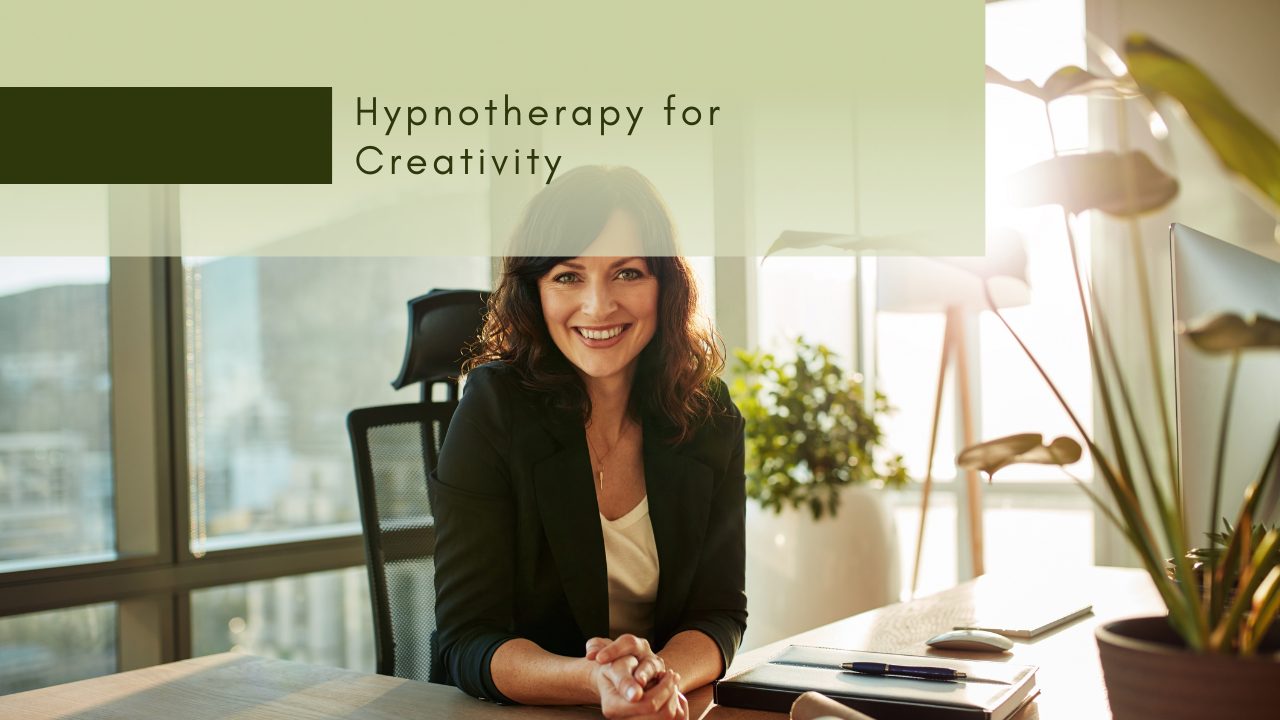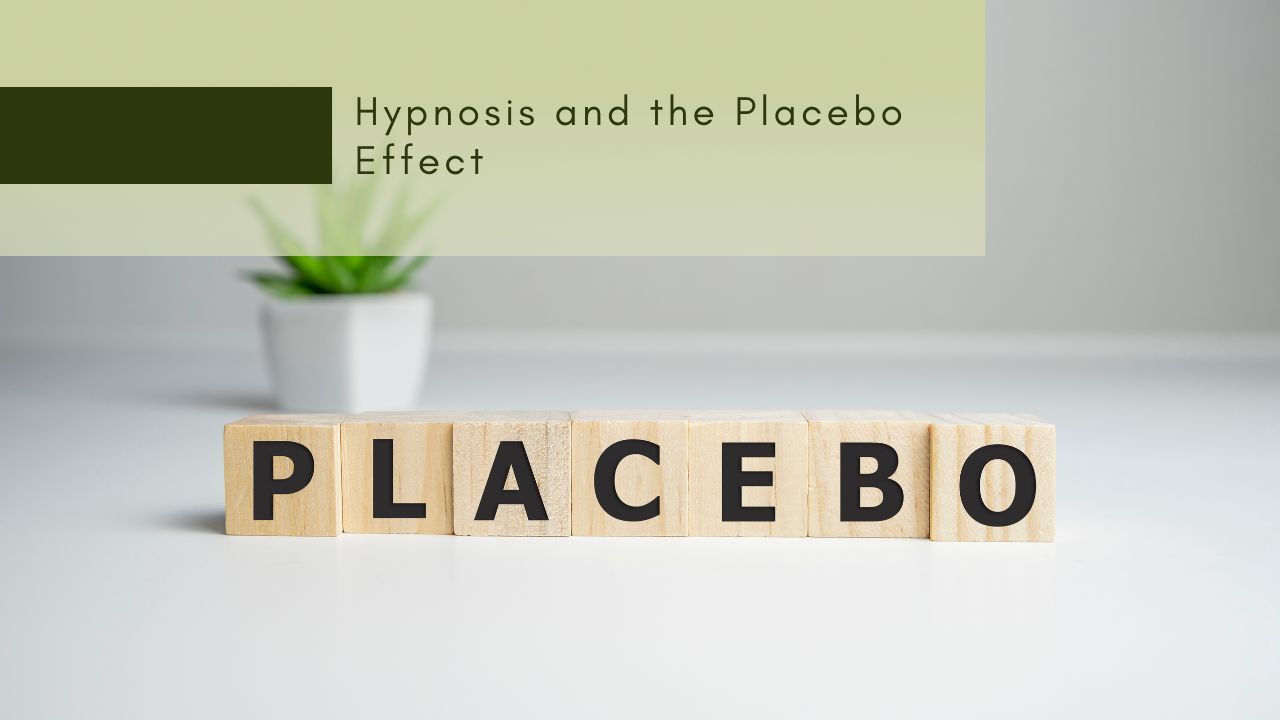In this post, we will explore the topic of hypnotherapy for creativity. Creativity is an essential skill that can help you solve problems, generate new ideas, and achieve your goals. Hypnotherapy is a fun and effective way to unlock your creative potential by tapping into your subconscious mind and stimulating your creative faculties. In this post, we will provide you with valuable insights into the benefits of hypnotherapy for creativity and share some tips on how to use it to enhance your creative abilities.
How Does Creativity Benefit Your Life and Happiness?
Creativity can have a profound and positive impact on your life and overall happiness in various ways. Here are some of the key benefits of embracing creativity:
- Self-expression: Creativity allows you to express your thoughts, feelings, and ideas in unique and meaningful ways. It provides an outlet for self-expression and self-discovery, helping you better understand and connect with your inner self.
- Stress reduction: Engaging in creative activities, whether it’s painting, writing, playing music, or any other form of expression, can be a powerful stress-reliever. Focusing on a creative task can help divert your mind from everyday worries and promote relaxation.
- Problem-solving: Creativity encourages you to think outside the box and find innovative solutions to problems. It enhances your ability to approach challenges with a fresh perspective and adapt to changing circumstances more effectively.
- Increased confidence: Accomplishing creative endeavours and seeing your ideas come to life can boost your self-confidence. It reminds you of your abilities and reinforces your belief in your capacity to make a positive impact.
- Enhanced cognitive abilities: Creativity stimulates your brain and improves cognitive functions like memory, concentration, and critical thinking. It encourages mental agility and the development of new neural connections.
- Connection with others: Sharing your creative work can foster connections with like-minded individuals and create a sense of community. Collaborative creative projects can also promote teamwork and communication skills.
- Emotional well-being: Engaging in creative activities can evoke a wide range of emotions, helping you process and cope with them. Whether it’s through art, music, inventing, or writing, creativity can be a therapeutic means of managing and understanding your emotions.
- Sense of purpose: Pursuing creative endeavors can provide a sense of purpose and fulfillment. It can give you a reason to get out of bed, a goal to work towards, and a source of motivation.
- Personal growth: Creativity challenges you to learn, adapt, and grow. It encourages you to explore new interests, acquire new skills, and expand your horizons.
- Joy and fulfillment: The act of creating something, whether it’s a piece of art, a story, or a project, can bring a sense of joy and accomplishment. This fulfillment can contribute to an overall sense of happiness.
- Resilience: Creativity can help you become more resilient by teaching you to embrace failure as a stepping stone to success. It encourages you to persevere and learn from setbacks.
- Mindfulness and presence: Creative activities often require your full attention and presence, which can help you live in the moment and reduce anxiety related to past or future concerns.
In summary, creativity plays a crucial role in enhancing various aspects of your life, contributing to your overall well-being and happiness. It provides an opportunity for self-expression, problem-solving, personal growth, and emotional release, while also promoting cognitive, emotional, and social development. So, embracing creativity as a regular part of your life can lead to a more fulfilling and happier existence.
What is hypnotherapy and How Can it Boost Your Creativity?
Hypnotherapy is a therapeutic technique that combines hypnosis with psychological counseling or therapy. During a hypnotherapy session, a trained therapist guides a person into a deeply relaxed state of focused attention and heightened suggestibility, commonly referred to as a trance. In this state, the individual is more receptive to suggestions and insights that can help address various issues or conditions, such as stress, anxiety, phobias, and creative blocks.
Hypnotherapy can potentially boost creativity in several ways:
- Reducing mental barriers
- Enhancing relaxation
- Accessing the subconscious
- Altering thought patterns
- Enhancing focus and concentration
- Overcoming creative blocks
- Visualising success
What Are the Benefits of Using Hypnotherapy for Creativity?
Hypnotherapy can offer several benefits when used to enhance creativity: Below are the way in which hypnotherapy can help:
- Overcoming Creative Blocks: Hypnotherapy can help individuals identify and address the root causes of creative blocks, such as self-doubt, fear of failure, or past negative experiences. By addressing these underlying issues, it can remove obstacles to creativity.
- Stimulating Imagination: In a hypnotic state, individuals can access their subconscious mind more readily, which can stimulate imagination and lead to the generation of novel and creative ideas. It encourages free thinking and helps individuals think outside the box.
- Enhancing Focus: Hypnotherapy can improve an individual’s ability to concentrate and stay focused on creative tasks, helping to maintain the flow of creative thought and work. It can also improve attention to detail in creative projects.
- Boosting Confidence: Hypnotherapy can increase self-confidence and self-esteem, which are vital for creative expression. By addressing self-doubt and negative self-perceptions, it can empower individuals to explore their creativity with greater confidence.
- Reducing Anxiety and Stress: Creative blocks are often linked to stress and anxiety. Hypnotherapy can provide relaxation and stress-reduction techniques that help individuals enter a calm and receptive state for creative thinking.
- Changing Negative Thought Patterns: Hypnotherapy can assist in altering negative thought patterns and limiting beliefs that stifle creativity. It encourages more positive and constructive thinking patterns that support creative endeavors.
- Accessing Unconscious Insights: The hypnotic state allows individuals to access deeper, subconscious insights and ideas. Creative solutions that may not be apparent in a conscious state can surface during hypnotherapy sessions.
- Goal Visualisation: Hypnotherapy often involves guided visualisation exercises that help individuals visualise the successful completion of creative projects. This can boost motivation and provide a clearer path toward creative goals.
- Enhancing Problem-Solving Skills: Hypnotherapy can improve problem-solving skills by encouraging creative problem-solving during sessions. This skill can extend to various aspects of life, including creative projects.
- Strengthening the Creative Process: By working on creativity at a deep psychological level, hypnotherapy can lead to lasting changes in how an individual approaches the creative process. It can foster a more open and exploratory mindset.
It’s important to note that the effectiveness of hypnotherapy for enhancing creativity may vary from person to person. The outcomes depend on individual goals, the skill of the hypnotherapist, and the willingness of the individual to engage with the process.
How Do You Practice Hypnotherapy for Creativity at Home or With a Professional?
Practicing hypnotherapy in Auckland for creativity can be done both at home and with the guidance of a professional. Here are some steps for practicing hypnotherapy for creativity in each setting:
At Home:
- Set the Scene: Find a quiet and comfortable space where you won’t be disturbed. Make sure you have enough time and privacy for your session.
- Relaxation Techniques: Begin with relaxation techniques such as deep breathing exercises or progressive muscle relaxation to calm your mind and body. These techniques can help you enter a state of relaxation conducive to hypnosis.
- Set an Intention: Determine your creative goal or what specific aspect of creativity you want to work on. This intention will guide your hypnotherapy session.
- Self-Hypnosis: You can use self-hypnosis scripts or recordings that are designed to enhance creativity. There are many hypnotherapy apps and recordings available online that can guide you through the process.
- Visualisation: During the hypnotic state, visualise yourself as a creative and inspired individual. Imagine yourself successfully working on your creative projects, generating ideas, and overcoming obstacles.
- Positive Affirmations: Repeat positive affirmations related to your creative goals. These affirmations can help reprogram your subconscious mind to support your creativity.
- Journaling: After the session, keep a journal to record any insights, ideas, or experiences that arise during or after your self-hypnosis practice.
With a Professional:
- Find a Qualified Hypnotherapist: Look for a certified and experienced hypnotherapist who specialises in creativity or has experience working with creative individuals. You can search for professionals through directories or referrals.
- Initial Consultation: Schedule an initial consultation with the hypnotherapist to discuss your goals, challenges, and expectations. This meeting will help you determine if the therapist is a good fit for your needs.
- Customised Approach: The hypnotherapist will tailor the hypnotherapy sessions to your specific goals and challenges related to creativity. Each session may focus on different aspects of your creativity.
- In-Person or Virtual Sessions: Hypnotherapy can be conducted in person or virtually, depending on your preferences and the therapist’s offerings.
- Relaxation and Induction: During the sessions, the therapist will induce a hypnotic state through relaxation techniques and guided imagery. They will help you reach a state of heightened suggestibility and focused attention.
- Suggestion and Visualisation: The therapist will provide suggestions and guided visualizations to enhance your creativity, overcome creative blocks, and develop a more positive mindset.
- Homework: Between sessions, the therapist may assign homework or exercises to reinforce the benefits of hypnotherapy for creativity.
- Feedback and Progress Monitoring: Regularly communicate with the hypnotherapist about your progress and any changes you notice in your creative thinking and expression.
Whether practicing hypnotherapy for creativity at home or with a professional, consistency and commitment are key. Hypnotherapy may take time to yield noticeable results, so it’s important to maintain regular practice and stay open to the process. Additionally, remember that the effectiveness of hypnotherapy can vary from person to person, so be patient and persistent in your efforts to boost creativity through this method.




